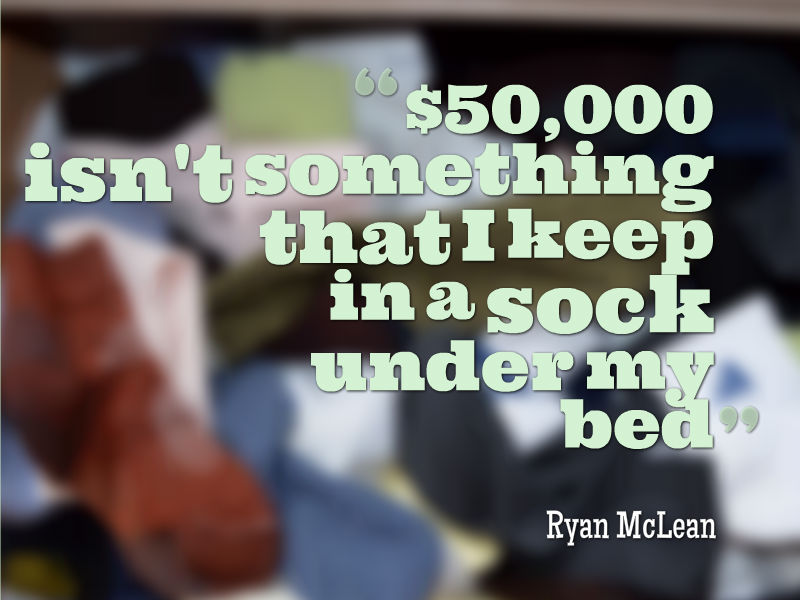The Problems With Property Investing (Ep170)
There are problems when it comes to invest in property and it is important that you are aware of them. It is not all sunshine, rainbows, lollipops and unicorns. You need to be aware of the problems with property investing.
Investing in property is not all sunshine and lollipops and rainbows and unicorns. There are problems when it comes to investing in property, it is important that you are aware of them. So what are the problems with property investing?
Is investing in property is even worth it at all? I am largely on the camp that says that investing in property is a great way to create financial security and achieve financial freedom for yourself, but I’m not naive enough to think that there are no problems with property investing.
 So, what are the problems when investing in property so that you can assess whether or not this investment vehicle is right for you? I’ve got 8 problems to tackle today, so let’s get straight into it:
So, what are the problems when investing in property so that you can assess whether or not this investment vehicle is right for you? I’ve got 8 problems to tackle today, so let’s get straight into it:
Problem #1: You Need Large Cash Amounts
Problem number one is that you need large cash amounts in order to purchase a property. You generally need somewhere between 5% to 20% as a deposit for a property. Then once you take stamp duty into account and other fees, you are really looking at somewhere between 10% or 11% percent of the value of the property, upwards.
On a $500,000 property you are looking at cash investment of at least around $50,000 in order to get you started.
Now I don’t know about you and what your financial situation is but $50,000 isn’t something that I keep in a sock under my bed, it’s not something that’s extremely easy to come by so the large cash amounts that you need to invest in property is a huge problem because it means that you can’t get into the property as fast as maybe other investments where you don’t need as much cash.
It also means to jumping from one property to two or from two to three is actually pretty difficult because you need to come up with large sums of cash again.

Problem #2: You Need To Borrow Money
Problem number two is that you really need to borrow money. Yes you can buy property without borrowing money but you are going to have to have massive amounts of cash in order to do that.
In most circumstances you’re going to need to borrow money and to borrow a great deal of money in order to invest in property. Now borrowing money isn’t inherently bad but obviously it can put you under financial strain.
You’ve got the mortgage repayments that you need to make on that property and then if something happens and you need to sell the property and if it doesn’t sell for the same value, well then you’ve got a loan left over that you need to keep paying for even though you no longer have the property to show for it.
Problem #3: Most Property Investments Are Negatively Geared
Problem number three is that most properties are negatively geared. Negative gearing is when a property cost more than they actually generates in income which means you are paying money into it every single month. For many of us that’s not a viable strategy because we just don’t have the cash flow to pour into a property.
You can invest in positively geared property but they are much harder to find, that’s why I have created On Property Plus which is the membership site where I go out and I list high yield potential positive cash flow properties. If you don’t know how to find them yourself and you want me to show you how or to find some for you then that may be a good option for you.
But, yes, most properties in Australia are negatively geared which means you’re paying money just to keep them afloat.
Problem #4: Property Is A Large Investment
Problem number four is that it is a large investment that you’re making. You need lots of the cash and then you need to borrow money again and so you are looking at investing probably hundreds of thousands of dollars into just one investment.
You will really do have a lot of your eggs in just one basket. This large investment can add extra layers of risks to your property because obviously if goes poorly then there is large quantities and money that are going in the wrong direction. That large sum can scare a lot of people off or can just be too daunting for you.
Property #5: It Is Less Liquid

Problem number five is that it’s less liquid. If you want to get out of the stock market and you want that money in your bank account tomorrow well that’s actually viable. But if you want to get out of the property market and you want that money in your bank account tomorrow then it is basically impossible.
Even if you put your property on the market and sell it the same day you’ve still got cooling-off periods and then a time before you actually finally settle and get the full cash amount yourself. That’s generally anywhere from 2-6 weeks+ and that is if your property sells straight away.
So investing in property generally isn’t as liquid as investing in shares, or investing in cash or investing in other different types of investments.
Problem #6: Property Investing Does Have It’s Headaches
Problem number six is they can have some property headaches. If you invest in shares then there’s very little chance that the company is going to call you up and let you know that the toilet is broken and that you personally need to pay to have it fixed.
Owning a property can come with some headaches. There is headaches to do with maintenance, you can have problems with tenants, you can have problems with your property manager, there can be damage to the property that you need to deal with etc.
There is some active involvement that you need to play in order to keep your property investment ticking along and achieving the maximum return on investment possible.
Problem #7: Ongoing Costs
Problem number seven is that property comes with ongoing costs. There’s ongoing maintenance that you need to pay for your property, you need to pay things like council rates and insurance and there is a whole bunch of things that you need to pay for whether or not you have a tenant in that property.
These ongoing costs can make property more risky. If you find it difficult to get tenants that can help you pay for those costs then it means you need to pay for these costs yourself. If you own shares then there’s not really any ongoing costs that you need to pay.
Problem #8: It Can Be Very Hard To Predict Growth
It’s very hard to predict what the market is going to do. Yes they say property prices tend to double every 7 to 10 years but that varies from area to area. Often a property will go stagnant for 5 years or so and then shoot up within just a couple years.
It’s very difficult to actually pinpoint those locations that are about to go through a massive amount of growth and to get the growth that you want. Even if you have all the right data in place and you know about population and economics and government investment and all this sort of stuff, there is still no guarantee that the price of your property is actually going to go up.
Believe it or not but prices of some properties do actually go down in value over time so it is very difficult to predict what’s going to go up and what’s going to go down but I guess that’s no different to any other investment.
So there you have eight different problems with property investing. Now I love property investing and so I look at these problems and I think okay yes they have some problems but they also have some major upsides to them as well.
Investing in property, because it is an active investment allows you to actively improve that property and get a better return on investment than you could have had somewhere else. You have more control over your investment than you would with shares where you don’t own the company. You also have more stability in the market where shares tend to fluctuate on a daily basis.
While property is less likely to fluctuate on a daily basis it tends to fluctuate over a much longer time period and if you invest in positive cash flow property where you can actually see out those fluctuations because you are actually getting a return on your investment anyway.
There are lots of benefits to investing in property, it’s not all bad but I do think it’s important that you know what the problems are so that you can decide whether or not this is an investment vehicle that you want to pursue.
DISCLAIMER No Legal, Financial & Taxation Advice
The Listener, Reader or Viewer acknowledges and agrees that:
- Any information provided by us is provided as general information and for general information purposes only;
- We have not taken the Listener, Reader or Viewers personal and financial circumstances into account when providing information;
- We must not and have not provided legal, financial or taxation advice to the Listener, Reader or Viewer;
- The information provided must be verified by the Listener, Reader or Viewer prior to the Listener, Reader or Viewer acting or relying on the information by an independent professional advisor including a legal, financial, taxation advisor and the Listener, Reader or Viewers accountant;
- The information may not be suitable or applicable to the Listener, Reader or Viewer's individual circumstances;
- We do not hold an Australian Financial Services Licence as defined by section 9 of the Corporations Act 2001 (Cth) and we are not authorised to provide financial services to the Listener, Reader or Viewer, and we have not provided financial services to the Listener, Reader or Viewer.
"This property investment strategy is so simple it actually works"
Want to achieve baseline financial freedom and security through investing in property? Want a low risk, straightforward way to do it? Join more than 20,000 investors who have transformed the way they invest in property."
